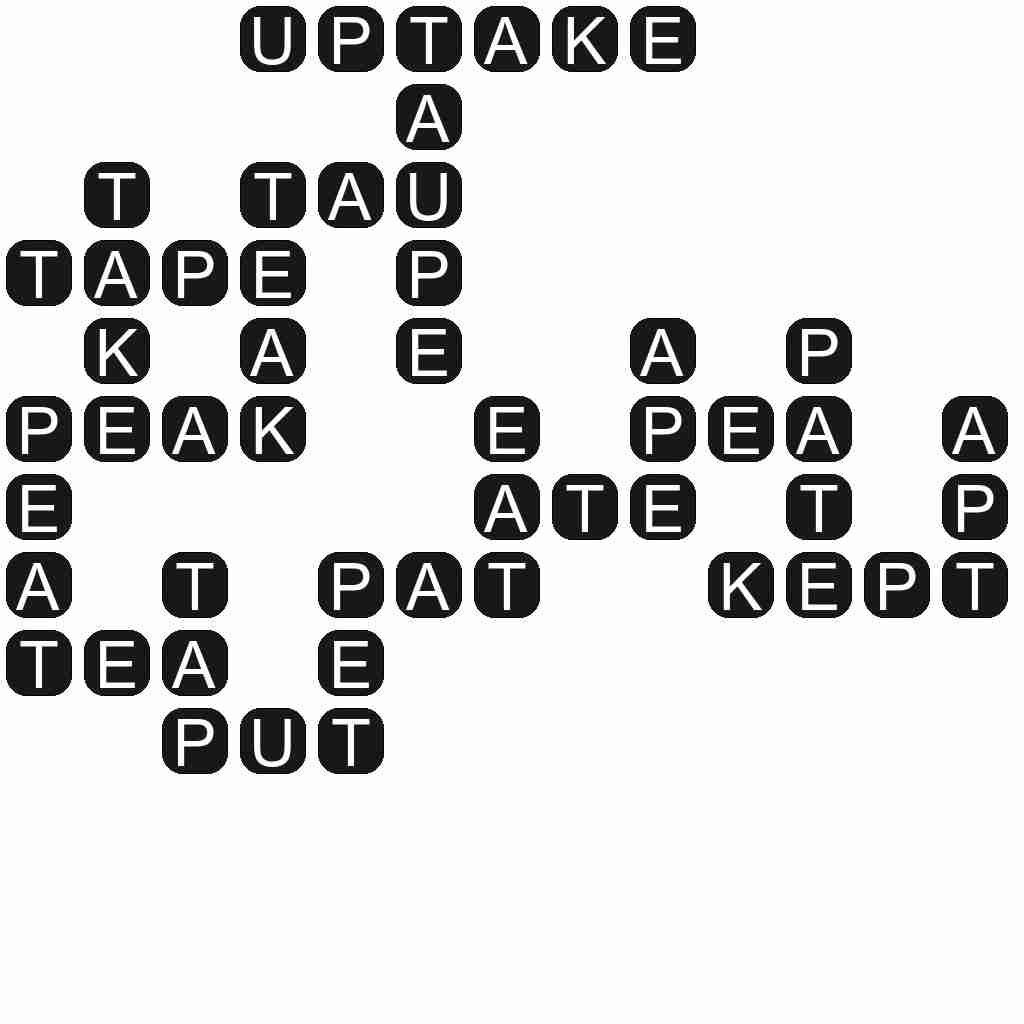APE - A primate of the clade Hominoidea, generally larger than monkeys and distinguished from them by having no tail.
ATE - Simple past of eat.
EAT - To consume (something solid or semi-solid, usually food) by putting it into the mouth and swallowing it.
PAT - The sound of a light slap or tap with a soft flat object, especially of a footstep.
PEA - A plant, member of the legume (Fabaceae) family.
PET - An animal kept as a companion.
PUT - To place something somewhere.
TAP - A tapering cylindrical pin or peg used to stop the vent in a cask; a spigot.
TEA - The dried leaves or buds of the tea plant, Camellia sinensis.
APT - Suitable; appropriate; fit or fitted; suited.
TAU - The name of the letter T/τ in the Greek, Hebrew and ancient Semitic alphabets, being the nineteenth letter of the Classical and Modern Greek, the twentieth letter of Old and Ancient Greek.
KEPT - Simple past tense and past participle of keep.
PEAK - A point; the sharp end or top of anything that terminates in a point; as, the peak, or front, of a cap.
PEAT - A pet, a darling; a woman.
TAKE - To grasp with the hands.
TAPE - Flexible material in a roll with a sticky surface on one or both sides, adhesive tape.
PATE - The head, particularly the top or crown.
TEAK - An extremely durable timber highly valued for shipbuilding and other purposes, yielded by Tectona grandis (and Tectona spp.).
TAUPE - A dark brownish-grey colour, the colour of moleskin.
UPTAKE - Understanding, comprehension.








